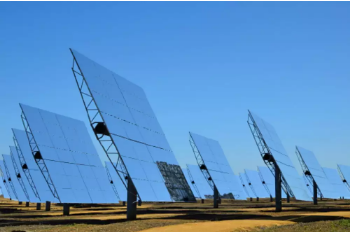Delays in power supply agreements (PSAs) for about 7 gigawatt (GW) of the bid out renewable energy projects might lead to 35 per cent shortfall in the 160-GW renewable energy capacity target set for the end of calendar year 2022, according to CRISIL Research.
It, however, added that this delay might not impact the credit profile of developers since implementation and debt drawdowns have not yet started and project viability remains largely intact, supported by benign module price trajectory over the past 18 months.
“The PSAs for the 7 GW of projects bid out at auctions prior to February 2020 are yet to be signed primarily because subsequent auctions saw tariffs plummeting and even falling below Rs 2 in December 2020,” said Hetal Gandhi, director, CRISIL Research.
She said that of this, nearly 3 GW run the risk of re-auction or cancellation because their tariffs were comparatively higher at over Rs 2.75 per unit – a good 75 paise more than the recently discovered tariffs.
According to the research agency, the remaining 4 GW might have some hope because it expects a 25-50 paise increase in tariffs at the upcoming auctions because new projects will have to bear basic customs duty applicable on import of solar cells and solar modules.
“That means the tariff differential between projects sans PSAs but with tariffs below Rs 2.753, and those to be auctioned next, will narrow. It would also be faster for discoms, already short on their renewable targets, to buy power from auctioned projects with unsigned PSAs compared to projects which are yet to be auctioned,” it added.
Ankit Hakhu, director, CRISIL Ratings, said that the delays in the signing of PSAs, however, were unlikely to have a major impact on the credit profiles of renewable energy developers.
“That’s because financial closure and debt drawdowns in such projects happen only upon the receipt of the Letter of Award, which is typically issued only after the PSAs are signed. As for project cost, no impact is foreseen because the prices of solar modules, which account for over 50 per cent of it, have been benign,” added Hakhu.
Developers can also opt out of projects after six months in case of adverse changes in cost parameters. Such caveats reduce the risk stemming from delays in the signing of PSAs.
That said, a sharp build-up or sustained delays in clearing the existing PSAs might dampen investor confidence because returns typically start compressing when capital deployment is deferred.
About 7 GW of unsigned PSAs pose risk to renewable energy targets: CRISIL
This capacity is yet to be signed because subsequent auctions saw tariffs plummeting and even falling below Rs 2 in December 2020
Source:Energyworld






